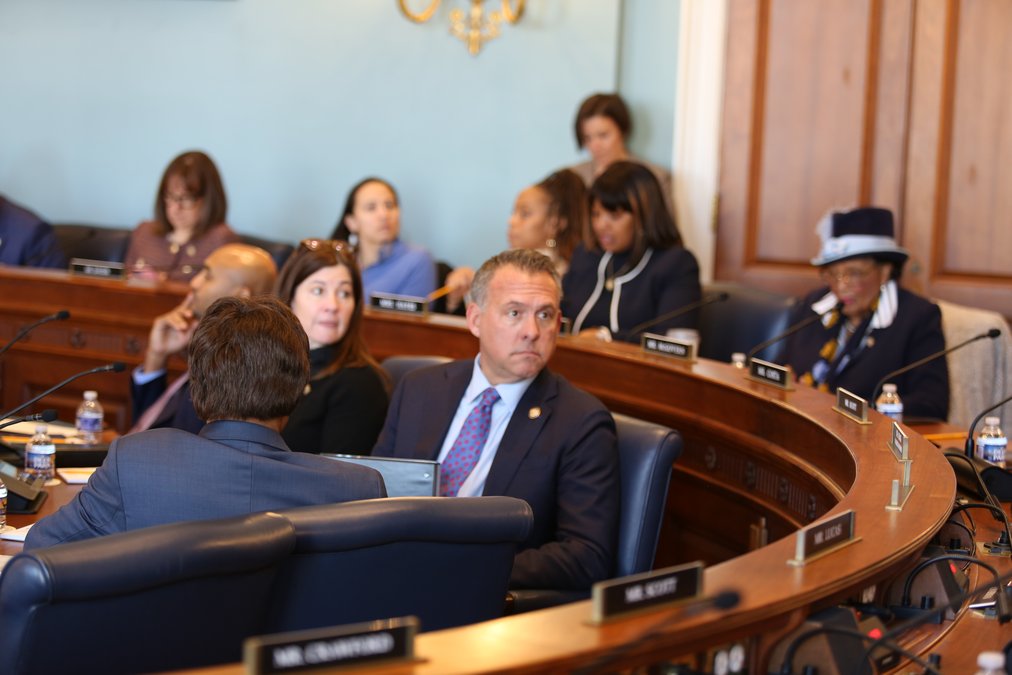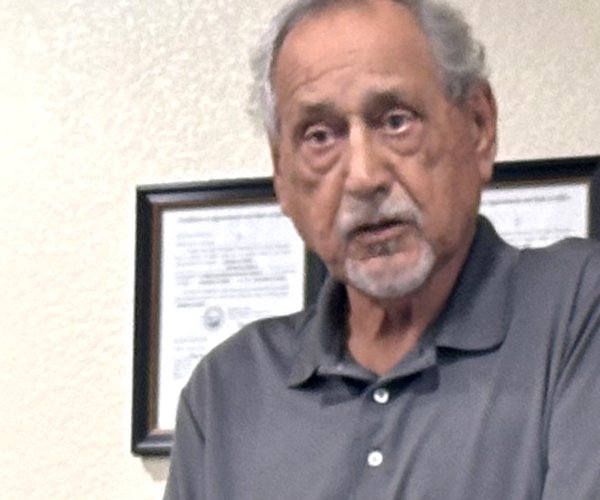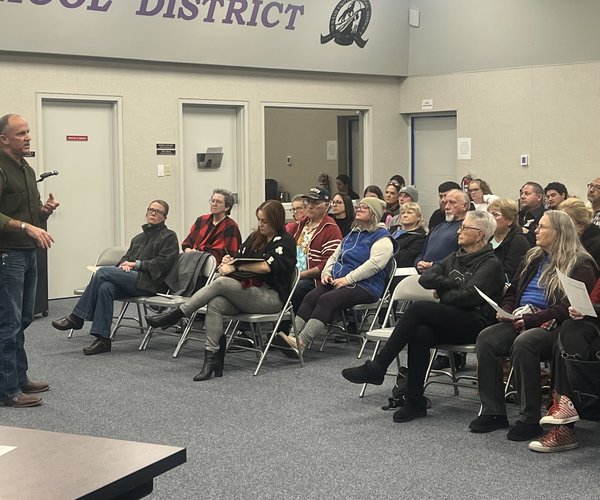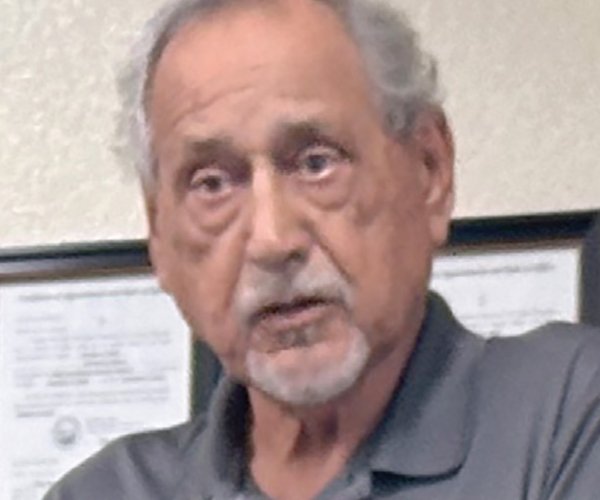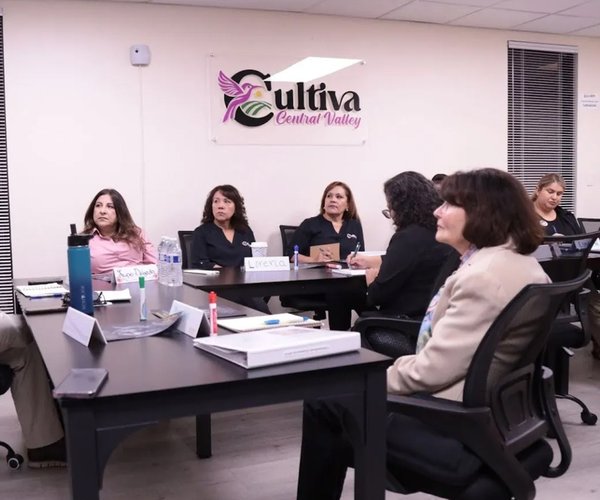Rep. Adam Gray (D-Merced), a five-term state legislator who defeated incumbent John Duarte by 187 votes for the 13th Congressional District seat in November, has been at his new job in Washington, D.C., for about three weeks now. Earlier this week, the Turlock Journal’s Joe Cortez conducted a phone interview with Gray, who said he’ll soon be having the grand opening of his Turlock office, located at 90 S. First St., as well as a local swearing-in ceremony to be held at the historic Merced County Courthouse.
Joe Cortez: Congressman Adam Gray … how does that sound?
Adam Gray: It sounds great. I had to work hard to get that title.
JC: So, how is a California kid like yourself holding up in what’s been a brutal East Coast winter?
AG: Well, after being here for three weeks, I have a credible argument for moving the nation’s capital to Santa Barbara, though I’m not sure anybody else is going to be on board with that plan. But I’ve heard a lot of East Coasters complain about the winter, so I don’t feel so bad. It’s been unusually cold.
JC: Can you tell me a little bit about how you’re settling in? Where are you living? In which office building were you placed?
AG: Right now, I’m living in a hotel about three blocks from my office, which is in the Longworth Building, between the Rayburn and Cannon buildings. I encourage all my constituents in Turlock and throughout the 13th Congressional District to come and visit. They can call and arrange a tour, and we can help make the most of their visit to Washington, D.C.
JC: To which committees have you been assigned?
AG: I’m on the Agriculture Committee and the Natural Resources Committee. And I’m serving on subcommittees that deal with water. I’m really excited about it because water has been an important issue throughout my public service and I want to continue that in Washington. I’m also on committees that deal with horticulture and forestry issues, and another that deals with livestock, dairy and poultry issues. We’re already talking about a farm bill for this year. It’s a year overdue and I’m working with Republican colleagues to try and get that done.
JC: You mentioned forestry issues. Let’s talk about the wildfires affecting Southern California. President Trump has hinted that there will be conditions on federal aid to the state. What are your thoughts on conditional aid?
AG: These fires are obviously tragic and devastating for the families that have been impacted. It’s hard to imagine the overall footprint of devastation when you look at a map, and we are keeping those affected in our thoughts and prayers. As far as the conversation about aid, the United States has unconditionally given disaster aid for every state, as it should have. All Americans support each other. I ran for this job because this place is too partisan. We have differences, but at the end of day, we’re all in this together. The fact that people are talking about conditional aid, whether it’s a Republican state or a Democratic state, is absurd, and it’s beneath the dignity of this country. I certainly won’t support any of this nonsense.
JC: You also mentioned your work on the subcommittee dealing with poultry. The price of eggs has been a huge topic of discussion nationally. How can Congress help bring down grocery prices?
AG: I think we can make our supply lines, energy costs, supply costs, and transportation costs — all things that go into the price of goods — more efficient. We have to work on legislation for inland ports and work to get trucks off the road that will help clean our air. I carried a bill during my time in the California statehouse to reduce the cost of hydroelectricity. I think we should constantly be taking advantage of free-market forces and profit motives to drive down input costs. There’s a lot government can do. At the same time, we need to make sure people are getting good wages and have good infrastructure and roads and schools.
JC: Politics has become so divisive in our nation. How can we make it less so?
AG: You know, people talk about running government like a business. My father and grandfather ran a dairy supply business in Merced. What does it take? You have to make sure you have the right number of employees, who are working efficiently, and you have to hire good people and fire the ones who are doing a bad job. Government is no different. It requires attention to detail. You have to show up every day and have the will to acknowledge when things aren’t going right. Things like audits and oversight are important. Too often in recent history, people in Washington think oversight is an opportunity to make the other side look bad. If we spent more time attacking bureaucracy, instead of each other, we’d be much more efficient. And I think that’s how businesses thrive. This is a country that is built on the backs of small business owners. We have to be willing to put all the political stuff aside and work together. I’ll just end by saying it blows my mind that people in Washington think it’s OK to answer every question by blaming somebody else. It’s constant finger-pointing. Working for my dad, I can’t imagine being asked to do something, then not doing it, and when he came back to check on me, the only thing I had to say was, “It’s Joe’s fault!” I can’t even fathom the look on his face. And that’s the way it is. Oh, it’s the Democrats’ fault. Oh, it’s the Republicans’ fault. It’s embarrassing. And none of these people would have been employed by my dad; I’ll tell you that.
JC: There’s been a lot of discussion over the past few days about President Trump's executive orders regarding undocumented immigrants. What is your stance on the immigration issue?
AG: Let me start by saying the vast majority of my friends, neighbors, coworkers are good people, doing good things. And that’s also true of our immigrant community. Let’s just start there. Stanislaus County Sheriff Jeff Dirkse is community-minded, honest, hard-working, and dedicated. I have every trust that he will apply the law in a fair and honorable way. We are a society that respects law and order, and we have to secure our border. I voted with my Republican colleagues to try and make our communities safer by voting for the Laken Riley Act. But, at the same time, I’ve called on my Republican colleagues to come to the table on immigration reform to provide protections for our DACA folks. We need to provide protections for hardworking immigrants, who are vital to our agriculture, construction, and service industries. They deserve to feel safe. I’m looking for opportunities to create safer communities and a safer border. I’m looking for colleagues to step up to the plate and protect law-abiding folks. I hope to see Republicans join me in that effort, just as I’ve joined them in some efforts that they think are important.
JC: The issue of homelessness continues to be a thorny one, not just here in Turlock, but throughout the district, throughout the state, and throughout the country. What can be done, federally, to help solve this crisis?
AG: It requires working hand in glove with the states. The homeless can be divided into different categories. One of those categories involves mental health and drug addiction, and there are no easy answers there. The answers there are expensive. Treatment is expensive. In another category, we have families living in cars or students living on couches, continuously moving around, because they can’t afford rent. There’s a shortage of housing in California. We have to work on permitting delays that slow construction, and we have to smooth out supply-chain issues and the costs of goods. We have to put policies in place that create a housing boom and allow for a renaissance of housing. We are 4 million homes under supply California. We are currently building in the neighborhood of 125,000 new homes a year. Four million short and we’re building 125,000 a year — that’s going to take a while for us to catch up. What needs to be done? It’s going to require innovation in the construction industry. And you’re seeing that right now. Part of the answer requires streamlining the red tape. Another part of the answer is workforce. I was talking to an Advanced Placement high school class, and they asked about housing and homelessness. I said, “If we need 4 million homes, what do we need?” Wood was their answer. That’s true, but what else? How about carpenters and plumbers and pipefitters and electricians?” Then I asked, by a show of hands, how many of the students were considering careers in those fields. Not a single hand was raised. Now, I get it. It’s an AP class, and those students probably have different opportunities and different career goals. But my point is we need young people to take on professions that will help us tomorrow. If we’re going to go from 125,000 to 4 million homes, we’re going to need four times, eight times, 10 times the number of workers. And that speaks to immigration reform. Any economist will tell you that immigrants contribute heavily to these professions. We need legislation that allows them to come here, better their lives and the lives of their families, and help solve the housing problem.
JC: What are some other legislative priorities?
AG: I’m very focused on the work of health care in the Valley and also protecting our ag economy. I want to continue the work of building the medical school at UC Merced, which I helped begin. My hope is to have a full-blown hospital in Merced, like at UCSF and UC Davis and UCLA. We need federal funding for that. An increase in residency slots are funded through the Medicare budget, and residency slots have been capped for decades. For readers who are familiar with this, medical residents are put into local hospitals and clinics to train to become doctors before they go on to their own careers. We need to vastly increase the number of slots available. That’s important.
As far as our ag economy, there’s nothing more important to ag than water. We need to protect our hydro facilities and storage resources — reservoirs above and aquifers below. Floodplain restoration is also important, and I helped secure funds for that when I was in the legislature. We need hundreds of projects like Dos Rios State Park throughout the Valley to help recharge our aquifers. You hear a lot of talk about levees, but levees break when you get enough water, and floodplains are good for that, with the added benefit of recharging aquifers.
JC: Congressman, we’ve known each other for a few years now. Plus, we hail from the same patch of grass: Merced. So, I feel somewhat qualified to say you sound excited; you sound energized about your new job.
AG: I do feel energized. You can’t walk around our nation’s capital without being impressed by the history. Whether I’m at the Capitol, with all the monuments, or at the Smithsonian, it humbles me, and it’s an honor to be here doing this. I look at our broken politics — finger-pointing and nothing getting done — and I don’t see it as something to complain about but something that voters have given me an opportunity to fix. They’ve sent me here to vote and be a voice on their behalf. I was walking through the Capitol the other day, and I came upon a plaque where Abraham Lincoln’s desk once was. You can’t help but stop and feel the importance of what you’re doing. You’re here, like leaders of past, to make a difference. Maybe I can. Maybe I can’t. But you’ll never know if you don’t wake up and get to work. And I’m excited by that. My eyes are wide open to the challenges. I don’t want people to think I‘m naive, but I think our country is better off if it hears the message from our Valley that it’s time to get work. As my dad used to say, “If work were fun, they’d call it ‘fun.’” But they don’t. It’s called work. So, let’s get to it.
